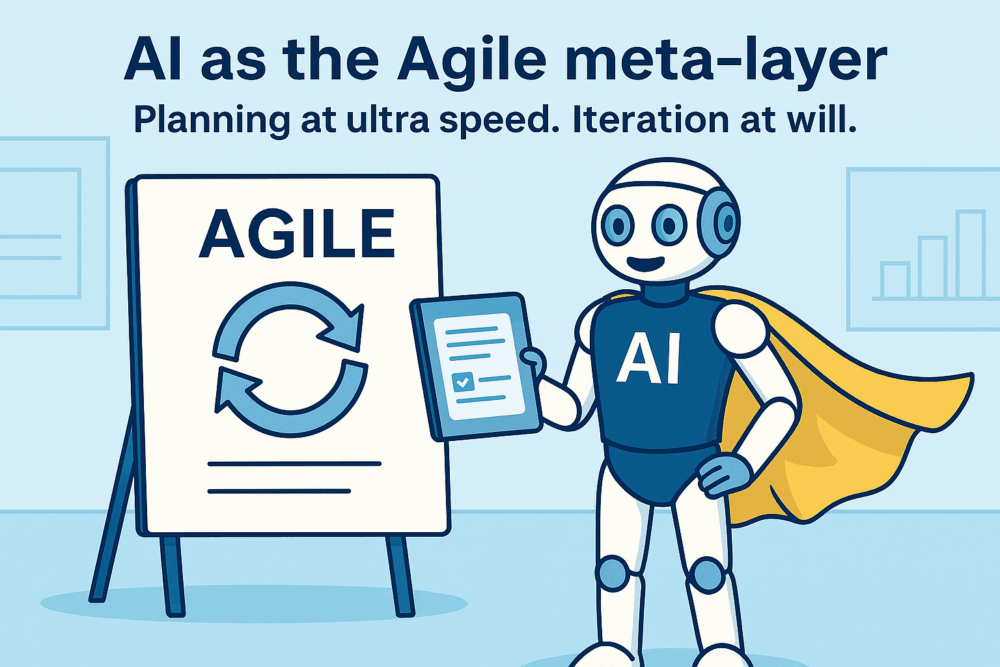Building Justice Around People
How AI and People-Centric Domain Design Can Help Reduce Reoffending
Reoffending continues to be a significant challenge for the UK justice system. Despite many years of reform, the cycle persists: an individual leaves prison, struggles to find housing or employment, misses a probation appointment, and then re-enters the system. Probation officers and probation services officers (PSOs) work tirelessly in this environment, managing risk, offering support, and liaising with courts and agencies—yet they are often overwhelmed and under-resourced.
The challenge is systemic, not individual. It is not due to a lack of empathy or dedication on the part of frontline professionals. The problem lies in the system’s continued fragmentation. Data is locked away in silos. Case management processes often fail to reflect the real-world complexity of people’s lives. Departments work in parallel rather than in partnership with each other. And crucially, the digital infrastructure that underpins this landscape is often reactive, outdated, and disconnected from the lived experience of service users.
If we are serious about reducing reoffending, we need to design systems that reflect how people actually navigate public services—and utilise technology that supports human judgment, rather than replacing it. At Modular Data, we believe this is possible. We’re building open, explainable, domain-driven tools that enable frontline staff to work smarter, not harder. And we’re doing it with a clear focus: designing for outcomes that matter.

Understanding the Domain: Why Probation Needs Better Models
Probation officers play a pivotal role in rehabilitation. They are the connective tissue between sentencing, custody, release, and community reintegration. But their tools often fail to reflect this. Risk assessments are static. Reports are duplicated. Information access between departments—such as between the Ministry of Justice, the Department for Work and Pensions, and HMRC—is slow or non-existent.
These constraints aren’t just administrative. They have real consequences. Without secure access to timely information about someone’s benefits, housing status, or prior convictions, officers can’t deliver joined-up support. And without joined-up support, individuals face a far greater risk of falling through the cracks.
Domain-Driven Design (DDD) provides a valuable approach to software development. Rather than viewing software as a generic backend system, DDD emphasises the importance of modelling our applications based on real business processes, actual behaviours, and the language used by stakeholders. In the context of probation, this means beginning with concepts that officers encounter daily, such as risk levels, intervention plans, sentence management, housing status, and substance misuse, among others.
Using DDD, we can model these into bounded contexts—clearly defined parts of the justice domain with their own rules, logic, and data. Each context can be developed independently, but still integrates with others. This mirrors the reality that someone on probation may need support across multiple areas—employment, accommodation, mental health—without forcing everything into a single monolithic system.
And this is not theoretical. Modular Data has already applied this approach in our work with HMPPS, building reusable, governed data products that reflect operational priorities and support better decision-making. Our Data Hub work has shown that it is possible to bring structure, transparency, and agility to justice data—if you start with human-centric domains.

From Models to Intelligence: Applying RAG to Justice Data
Of course, having better domain models is only the first step. To drive real value for frontline staff, we also need to make insights accessible at the point of need. This is where Large Language Models (LLMs) and Retrieval-Augmented Generation (RAG) can play a role.
RAG (Retrieval-Augmented Generation) enhances large language models (LLMs) by allowing them to generate more accurate and grounded responses. Instead of relying solely on the model’s internal parameters, which are static and can sometimes lead to inaccuracies, RAG retrieves relevant information from external sources before responding. This approach supplements the prompt with contextually relevant data, improving the overall quality of the response.
In practice, this means that a probation officer could ask a domain-specific question—”What interventions have been shown to reduce risk for offenders with a history of substance misuse and unstable housing?”—and receive an answer grounded in up-to-date research, local service availability, and internal MoJ guidance.
But this only works if the knowledge being retrieved is structured, governed, and relevant. That’s why the combination of DDD and RAG is so powerful. DDD gives us the scaffolding: well-defined domains, data products, and ontologies. RAG provides us with the reach: surfacing insights from across those domains in real-time.
With the proper governance in place, RAG-enabled tools can assist PSOs in preparing reports, designing support plans, flagging risk factors, and liaising across departments.

Making the Case for Cross-Department Collaboration
Reducing reoffending is not solely the responsibility of the justice system. Access to housing, benefits, and employment are crucial protective factors that help prevent reoffending. However, the responsibility for providing these services is shared among various organisations, including the Department for Work and Pensions (DWP), Her Majesty’s Revenue and Customs (HMRC), local authorities, and the voluntary sector.
The problem is coordination. Too often, departments hold different pieces of the puzzle but lack the mechanisms to share them. This leads to duplication, delay, and disempowerment. Individuals must repeatedly explain their situation, while frontline staff scramble to get a complete picture.
Our open-source intelligence platform addresses this by introducing a governed data product gateway that enables secure, cross-departmental access to data products. Crucially, this isn’t a data lake or central database. It’s a federated, policy-aware system that enforces access controls, preserves context, and allows each organisation to retain ownership of its data.
By building on open standards, Modular Data enables departments to collaborate without compromising sovereignty or security. We don’t ask organisations to give up control—we help them work together.

A Proof of Concept: Joined-Up Services to Reduce Reoffending
Modular Data is developing a cross-department Proof of Concept (PoC) to explore how domain-driven design, retrieval-augmented generation (RAG), and knowledge graphs can support efforts to reduce reoffending. Built using synthetic data, the PoC models are a collaboration between the Ministry of Justice, DWP, and HMRC. Using our open-source intelligence platform, we define structured, reusable data products grounded in core domains such as Probation, Housing, and Employment. These are then made securely accessible across departments, enabling responsible AI assistants to surface relevant, policy-aligned insights. This PoC demonstrates how modern approaches to data, governance, and AI can empower public servants to make more informed decisions, laying the groundwork for long-term, system-wide reform.

From Potential to Progress
Reoffending is a complex, human problem. It involves trauma, poverty, systemic bias, and social breakdown. No amount of technology will solve it on its own. But the right technology—built with empathy, rigour, and a clear understanding of the domain—can make a difference.
Modular Data works closely with partners to understand their world, build tailored solutions, and leave behind capacity, not just software. Our open-source platform, Sunrai, embodies this approach: an open, intelligent infrastructure for integrated public services
To break the cycle of reoffending, we must address the underlying issues of digital dysfunction. Let’s start by building systems that reflect how people actually live—and give frontline staff the tools they deserve.











